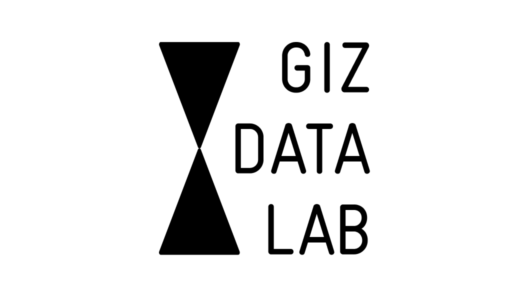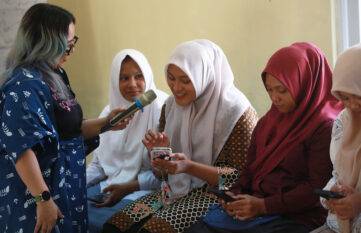Women are 7% less likely to own a mobile phone than men and 15% less likely to own a smartphone.

Digital transformation for inclusive and equal participation
Even though women make up half the global population, in the digital world men are still clearly in the majority. In Africa alone, only about half as many women use the internet as men – and for this reason they are often excluded from the many opportunities created by the digital transformation. This is because the internet gives access to information, education, networks, job exchanges, financial products and services – all these digital opportunities are denied to women and girls if they have no access to the web. Indeed, those who stand to benefit most from the opportunities offered by digitalisation – and who could participate more easily in economic, public and political life, take advantage of health services and develop their potential in education and employment – are marginalised groups and women in rural areas.
However, these opportunities are not equally distributed in low and middle-income countries.
234 million fewer women than men have access to mobile internet.
Women use mobile internet 15% less often than men.
The gender gap in access to and the use of digital technologies is called the digital gender divide. Women in rural areas, in particular, with a low level of education, with disabilities, as well as older or unemployed women, are subject to multiple forms of discrimination.
The digital gender divide also spills over into digital skills, employment and entrepreneurship in the information and communication technology (ICT) sector – and this applies worldwide.
Men are four times more likely than women to know how to use digital technologies for basic tasks.
Women make up only 35% of students in science and ICT subjects at universities.
Only 24% of all jobs in the digital sector are occupied by women, the majority of them at entry level with only few women in management positions.
Start-ups founded by women receive 23% less funding.
The lack of diversity perpetuates and exacerbates gender inequalities in the development of technologies, for example through (unrecognised) bias built into and replicated in algorithms and artificial intelligence.
What is the digital divide?

The digital gender divide has numerous causes:
-
lack of infrastructure, high cost of devices and data volumes
These are precisely the barriers we aim to address: if we are to overcome the digital divide, gender-specific needs and obstacles must be taken into account when projects and solutions are in development.
Closing the digital gender gap: The Network of Women Digital Ministers

Excerpt from the speech by Federal Minister Svenja Schulze at the 67th UN Commission on the Status of Women in March 2023. Together with ITU Secretary General Doreen Bogdan-Martin, she gave the go-ahead for the Network of Women Digital Ministers. This is being set up as part of [digital.global] and the EQUALS partnership for gender equality in the digital age.
Projects
atingi #WomenRulingTech
The digital learning platform atingi is developing a gender-sensitive and inclusive design for all its courses and offers a course portfolio that is specifically geared to women, such as the #WomenRulingTech campaign.
Project websiteAudiopedia
Audiopedia is an open source audio learning platform. It provides basic education and health information free of charge to marginalised populations in the global South. Knowledge is also accessible to non-readers through audio recordings, enabling gaps in knowledge between the genders to be closed.
Project websiteGIZ Data Lab
uses satellite data in cooperation with the Columbian statistics authority DANE to obtain a comprehensive picture of the city of Medellín and support political decision-makers in planning a resilient living environment.
Website




